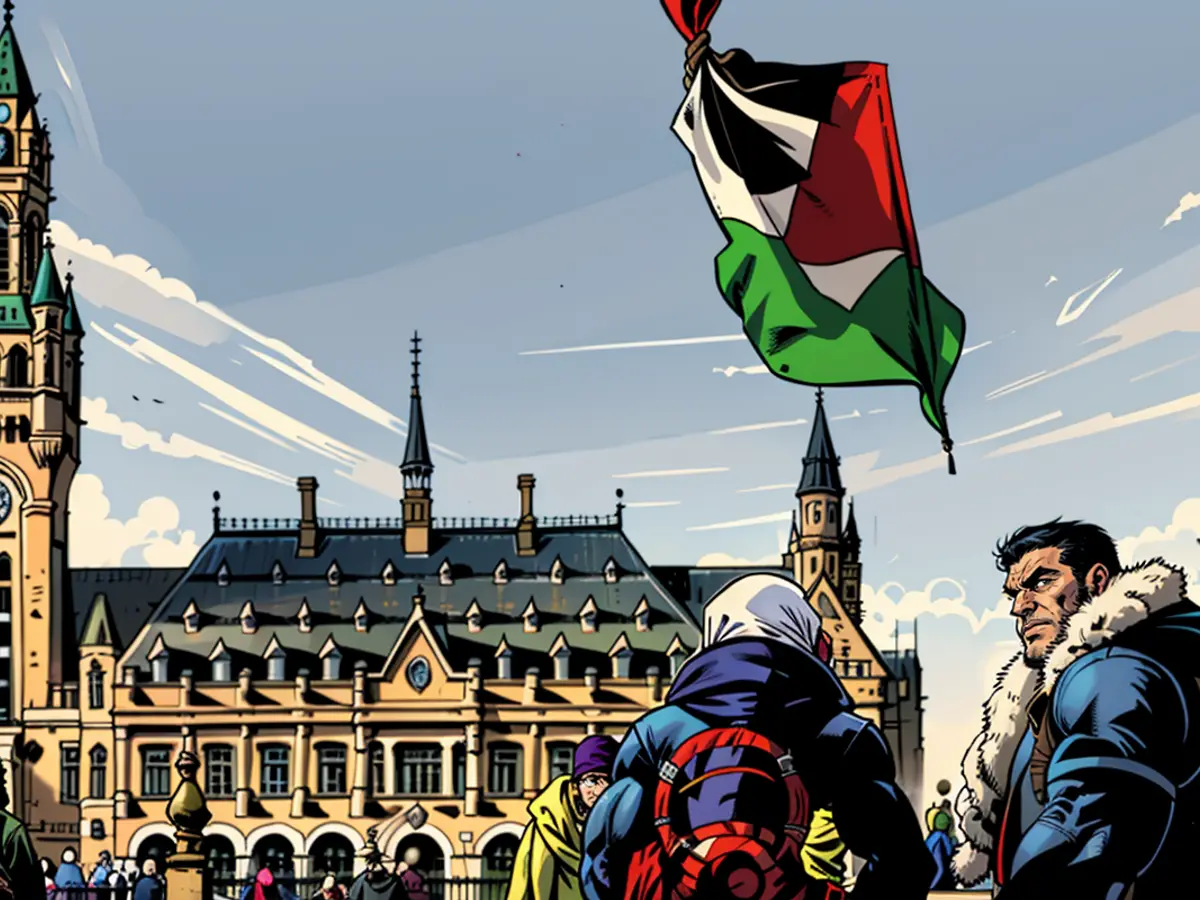The UN Court declares Israel's occupation of Palestinian territories as unlawful
According to the ruling of the IHC, Israel is "obligated to immediately halt all new settlement activities" and evacuate settlers from the occupied territories. The policies and practices of Israel, including the construction of new settlements and the maintenance of a wall between the areas, were deemed equivalent to annexation of large parts of the occupied territories by the Court. The IHC ruling is not binding, but it could further increase pressure on Israel in light of the conflict in the Gaza Strip.
The IHC held a one-week session at the request of the United Nations in February, during which hearings on the consequences of the occupation since 1967 took place. The UN General Assembly had already requested an unbinding "opinion" from the IHC in 2022 on the "legal consequences" arising from Israel's policies and practices in the Palestinian territories, including East Jerusalem.
During the hearings, representatives from Russia, China, and the USA, among others, addressed the judges in The Hague. A total of 52 states made statements before the IHC. The majority of them called for an end to the Israeli occupation in the Palestinian territories during the hearings. Israel itself did not attend the hearings.
The Palestinian presidency spoke of a "historic" decision on Friday. Israel is obligated to "unconditionally end this unlawful colonial enterprise", according to a statement from the office of Palestinian President Mahmoud Abbas. Palestinian State Minister for Foreign Affairs Warsen Aghabekian Shahin spoke of a "great day for Palestine".
The Hamas government in the Gaza Strip also welcomed the IHC ruling. It stated that the international community was "compelled to act immediately to end the occupation".
Netanyahu said after the ruling that the Jewish people are "not settlers in their own land" - neither in "our eternal capital Jerusalem" nor in the "inheritance of our ancestors", referring to the West Bank and the Gaza Strip. "No lying decision in The Hague will distort this historical truth, and the legality of Israeli settlements in all parts of our homeland cannot be denied", emphasized the Israeli prime minister.
Israel's right-wing Security Minister Itamar Ben Gvir, a supporter of Jewish settlement policy in the occupied West Bank, declared: "The ruling in The Hague proves once again that it is an openly antisemitic and political organization. We will not let ourselves be morally lectured by them". Ben Gvir called for Israel to strive for "sovereignty" over the occupied Palestinian territories through annexation. Right-wing Finance Minister Bezalel Smotrich also called for annexation measures for the West Bank. "The answer to The Hague - sovereignty now", he declared in an online service.
Opposition leader Yair Lapid criticized the court's decision as "one-sided, antisemitically tinted, and lacking understanding of the reality on the ground". The Israeli Foreign Ministry criticized the decision at X, stating that it would "significantly distance the possibility of a solution to the Israeli-Palestinian conflict".
The Israeli human rights organization B'Tselem stated conversely, that the international community must now "use all legal, diplomatic and economic instruments" in light of the ICC ruling, to pressure the Israeli government to end its occupation policy.
Israel, in the Six-Day War of 1967 when it had thwarted a perceived attack by Arab states, had taken control of the Gaza Strip and the West Bank. Since then, Israel has been occupying the West Bank and has advanced settlement building. Approximately 400,000 Israelis live there in settlements today.
In 2005, Israel completely withdrew from the Gaza Strip. Hamas, a radical Islamic Palestinian organization, emerged as the victor from elections held a year later in the strip.
- Despite the IHC's ruling, Israel's obligation to halt settlement activities in the Palestinian territories is not legally binding.
- The IHC's session was requested by the UN and involved discussions on the consequences of the occupation since 1967.
- Several countries, including Russia, China, and the United States, addressed the judges during the IHC hearings, urging an end to the Israeli occupation.
- The Palestinian presidency viewed the ruling as a call for Israel to unconditionally end its unlawful colonial enterprise in the occupied territories.
- The Hamas government in the Gaza Strip agreed with the IHC's decision, urging the international community to act immediately to end the occupation.
- Netanyahu, the Israeli prime minister, rejected the ruling, asserting that the Jewish people are not settlers in their own land and that the legality of Israeli settlements cannot be denied.
- Ben Gvir, Israel's right-wing Security Minister, labeled the ICC as an antisemitic organization and called for annexation measures in the occupied Palestinian territories.
- Lapid, the opposition leader, criticized the court's decision as one-sided, antisemitically tinted, and lacking an understanding of the reality on the ground.
- In response to the ICC ruling, B'Tselem, an Israeli human rights organization, urged the international community to use all available legal, diplomatic, and economic tools to pressure Israel to end its occupation policy.







